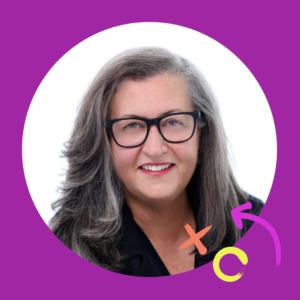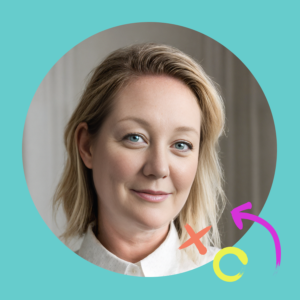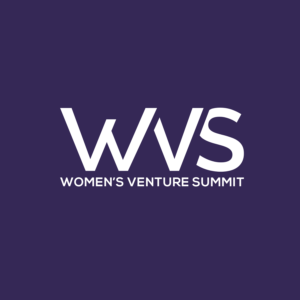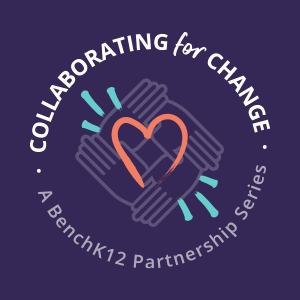Meet BenchK12’s Graduate Product Fellow Carey Jackson
I’m so excited to introduce you all to Carey Jackson, BenchK12’s current Graduate Product Fellow. As I often say, her title really doesn’t do justice to the wonderful role and work Carey has contributed to our small, but growing BenchK12 team.
We hope that we’ll be able to keep Carey on the team for some time to come. As potential investors and client-partners of BenchK12, you can help us retain Carey and hire even more great educators into our organization as we grow. It is so important to us to have educators and parents on our team because they bring such a critically important perspective and fierce urgency to our work. Carey’s additional expertise as a partner to a Diplomat has also, further, grounded our work in making sure that BenchK12 also helps State agencies solve the technology challenges inherent in reciprocity for educators who are highly mobile.
So, before this turns into a way-too-long intro before you can *finally* get the content you came for, I introduce you to Carey– who you can also find at the ASU+GSV Summit this week in San Diego!
-Brooke
First things first, tell everyone a little bit about you. How would you define yourself personally and professionally?
These days, my personal life is defined by being a mom to my three little kids – 7, 5, and 2 years old. In between dinner prepping and driving to soccer practices, I love traveling, reading, and music (I’m a violinist and singer when I get the chance). Professionally, I still define myself as a teacher, even though it’s been three years since I’ve been in the classroom full-time. I started teaching high school social studies in 2012 and adored it. I’m still actively involved in the K12 school world. My husband is a U.S. diplomat and we’re currently posted in Guatemala for his embassy assignment, where I serve on the Advisory Board of Guatemala City’s main K-12 American school.
Top three career highlights in education and/or tech:
- There’s no way to choose a specific highlight from my time as an educator; the daily experience of teaching, relationship-building, and helping students understand how to play with learning were all highlights for me.
- Another highlight was starting a small social studies curriculum development business almost ten years ago – it’s been extremely rewarding hearing about my ideas being implemented in tens of thousands of classrooms since then.
- As for a career highlight in tech, other than working with BenchK12, I also work with another EdTech startup called Kyron Learning. Kyron is developing an AI platform to support K12 learning while maintaining a focus on empowering teacher autonomy and centering the teacher-student relationship. It’s been really interesting to be part of this work and it feels especially important to keep the educator perspective present during the current AI boom.
What made you want to do a Product Fellowship at BenchK12?
The main drivers for my current work in EdTech have been my experience as a teacher and wanting to address issues in education on a larger scale than I could from my classroom. While teaching through COVID, I became increasingly converted to the transformational possibilities EdTech holds for K12 education. I’m committed to improving the lived experiences of teachers and students in the classroom; the national teacher shortage, in particular, is the issue closest to my heart. Teachers are and always have been the beating heart of education – addressing their needs and creating rational systemic changes is one of the best ways to simultaneously improve student educational experiences. I see the EdTech field as doing some of the most innovative, implementable, and impactful work in K12 education. As an MBA student and a Partnerships Director in the MBA EdTech Community, I’ve had the chance to observe and interact with many of today’s leading EdTech companies and most interesting startups. BenchK12’s mission and product jumped out at me as important, logical, and massively scalable – I immediately wanted to get involved!
What has your experience at BenchK12 been like so far and what are some of the things you’ve worked on?
I’ve loved being part of BenchK12! Something I really value is working with good people who are committed to social justice values. That was always a hallmark of my work experience in the teaching world, but it’s a bit less part of the culture of the MBA world. I valued that BenchK12 was a woman-founded company and that Brooke is open about intentionally creating a progressive and ethical work environment. I’ve since seen that its employees walk the walk. All of BenchK12’s employees are aligned in seeking to improve experiences and amplify voices among under-represented groups.
At BenchK12, I’ve had the chance to work on a variety of things at the intersection of product, partnerships, and strategy. I’ve contributed to research on and discussions with potential strategic partnerships with educational agencies, tech vendors, and interest-aligned organizations. I’ve also assisted in implementing integrations and designing BenchK12’s product.
When you look ahead ten years, where do you see BenchK12 headed as a company?
In ten years, I see BenchK12 serving as a credentialing platform for most certified positions in K12 education across the majority of states. BenchK12’s use case is so strong and it is implementable with such high efficiency and low cost, that I see it being adopted by states quite rapidly after our first successful pilots are completed. In ten years, I also see BenchK12 improving not just numbers of classroom educators, but also their experiences as we partner with organizations providing teacher pipeline programs, professional development, and advocacy.
What are the trends that you’re watching in K12 this year?
I (along with everyone in the EdTech world!) am very interested in the application of AI to educational technology. There are transformational possibilities in this area and we’ve only scraped the surface. As a former educator, however, I’m especially interested in making sure we tread carefully and apply a “do no harm” standard when developing AI technology to interact directly with young learners.
Another important trend this year is that EdTech companies are increasingly shifting their focus from individual consumers to contractual/enterprise partnerships with institutions and education agencies. During the pandemic, many users engaged with the K12 EdTech for the first time, largely as individuals from their homes seeking resources to meet needs on their own. We’ve probably never seen such a rapid increase in EdTech individual use, adoption, and mindset shift. With growing user familiarity and expectations, institutions are now spending more effort and dollars on establishing partnerships and contracts with EdTech companies. Specifically, within K12 education, The Elementary and Secondary School Emergency Relief Fund allocated 190 billion dollars to schools, the largest single federal investment in K12 education ever. Most of that money hadn’t yet been spent by the end of 2022, as schools and education agencies have been wary of the economic downturn and have been reserving their funds in case of slashed budgets. The ESSER money has an obligation deadline of September 2024, however, so I believe that in the upcoming year, K12 education agencies will be looking to partner with EdTech companies on a scale they’ve never done before.




